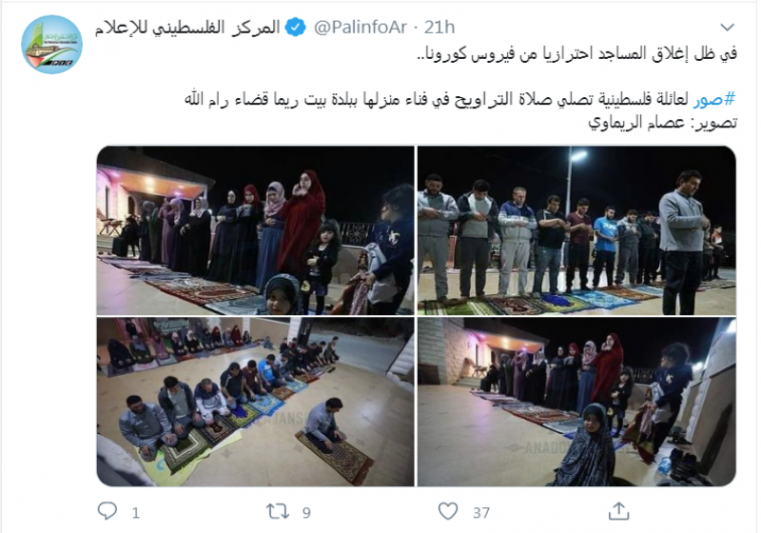By: Larbi Megari
The Holy Month of Ramadan’s Tarawih prayers have always been a special experience, a communal prayer conducted after the Iftar meal and the Isha prayers in the evening. It is not required, but nevertheless a beloved part of the spiritual movement and the nighttime social life of Ramadan, something to look forward to after spending a day fasting, and finally breaking bread with family, friends and loved ones when the azzan sounds as the sun sets.
So, when governments across the Muslim world banned mosques from holding Tarawih prayers to contain the spread of the novel Coronavirus, Muslims around the world were devastated. What would this Ramadan be without Tarawih? How do we adapt to observe this special part of our tradition at home—moving through this spiritual moment, all the while keeping our community safe from the pandemic as it rages around the world? Is it possible to do it over Zoom, the way that Jews were organizing digital Passover Seders, and Christians were broadcasting Easter mass? There are rules that Muslims cannot follow a televised Imam—what about one on YouTube?

It did not take long for Muslims to take to social media, first expressing frustration and sadness over the loss of the ritual, and quickly morphing this into a kind of quirky dark humor to collectively mourn the loss of that ritual as we know it. First it was memes—everything from Egyptian actor Ahmed Helmy sobbing over the loss of Tarawih, and Patrick from Spongebob Squarepants wondering what to do spending Ramadan alone.

Next, it was jokes. What will the mothers do who were hoping to find a bride for their son at the mosque? Could Japanese videogame Granblue Fantasy characters hack the codes to restore Tarawih as we know it?

Some pointed out the dark irony that war-torn Yemen has not been hit by the Coronavirus—and is the only Muslim-majority country that hasn’t had Tarawih prayers seriously curbed. Others expressed their jealousy of the selected imams and local authority leaders who have been permitted to practice a socially-distanced version of Tarawih at the Masjid al-Haram, the Great Mosque of Mecca in Saudi Arabia.

Most, however—like other believers whose rituals have been impacted by the virus—have been using social media to ask people to stay home, highlighting the potential special opportunity to lead prayers for other family members. YouTuber Saad Tasleem shared the fun trivia fact that the Prophet Mohamad practiced most of his Tarawih prayers at home, and many others have been using social media to guide those who are less experienced on how to do exactly this, sharing Fatwas on whether or not you can use a televised broadcast to practice your prayers, and posting photos their “Mihrab” spaces for inspiration for others to beautify their at-home prayer spaces. As the Prophet himself once said, “Take some of your prayers to your homes and make sure that they are not tombs.”
As we ease into the second half of Ramadan—and Eid approaches—many are hopeful that mosques may suddenly reopen, and we will be able to celebrate with new clothes, gifts and big gatherings. Some have even tweeted their Douaas to Allah, asking for the holiday marking the end of Ramadan to be as we once knew it. However, most are using social media to encourage others to again modify these traditions, perhaps wearing our best clothes instead of new ones and continuing to observe the health advisory.
Perhaps this Ramadan is different from most—but, as we’ve seen across social media, social distancing doesn’t mean we have to practice in isolation. If anything, we have come together even more, experiencing this collective moment, expressing our sadness, and coming together to learn how we can continue to practice tarawih no matter what the circumstances, sharing humor, community and spirit even during unprecedented times.
Just because we are practicing Tarawih apart, doesn’t have to mean that we aren’t experiencing it together.

